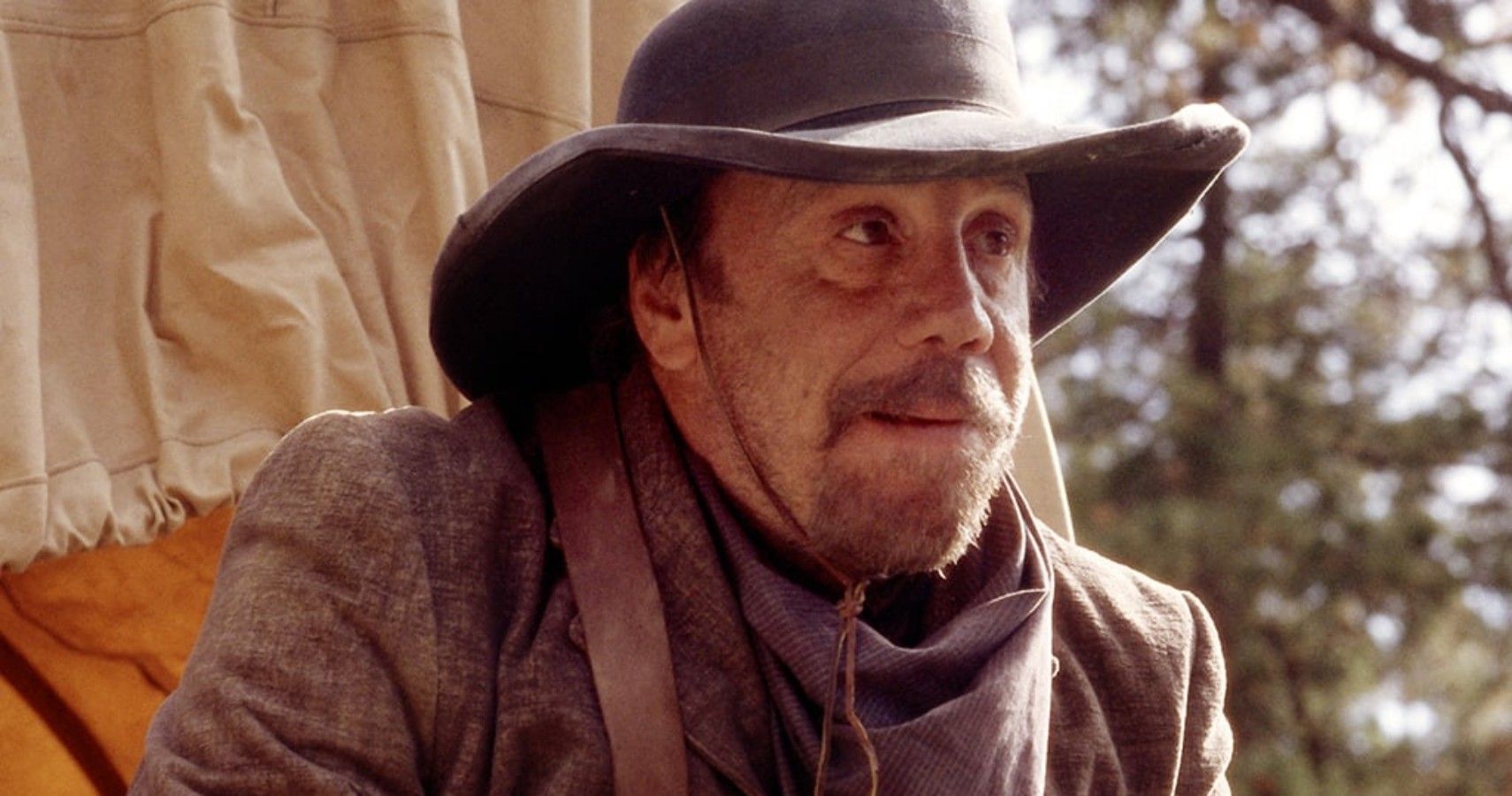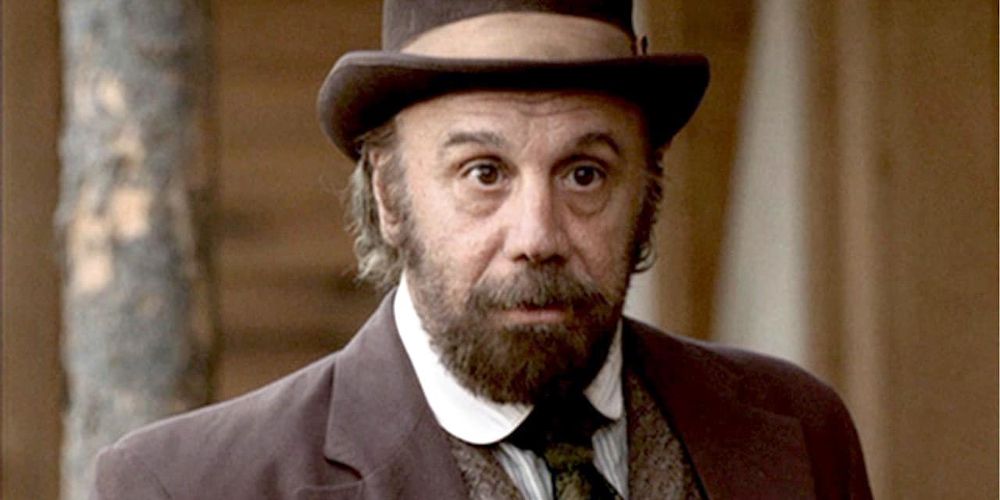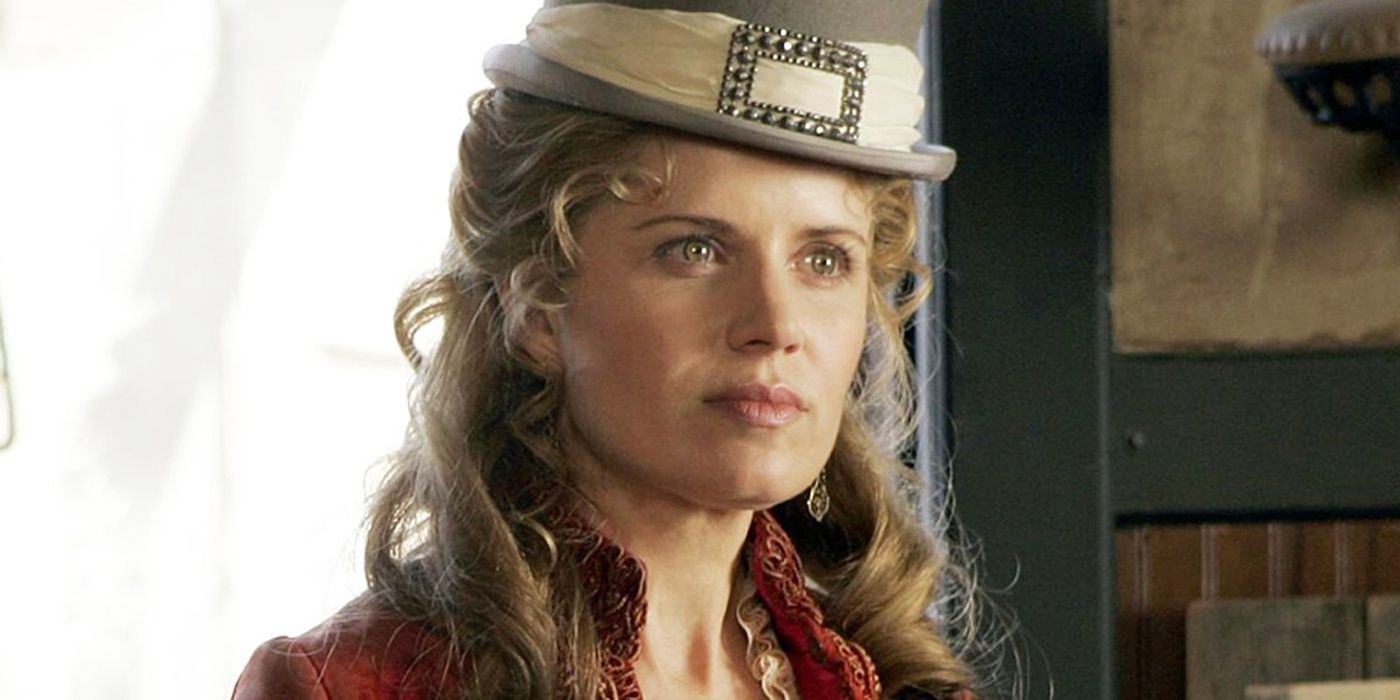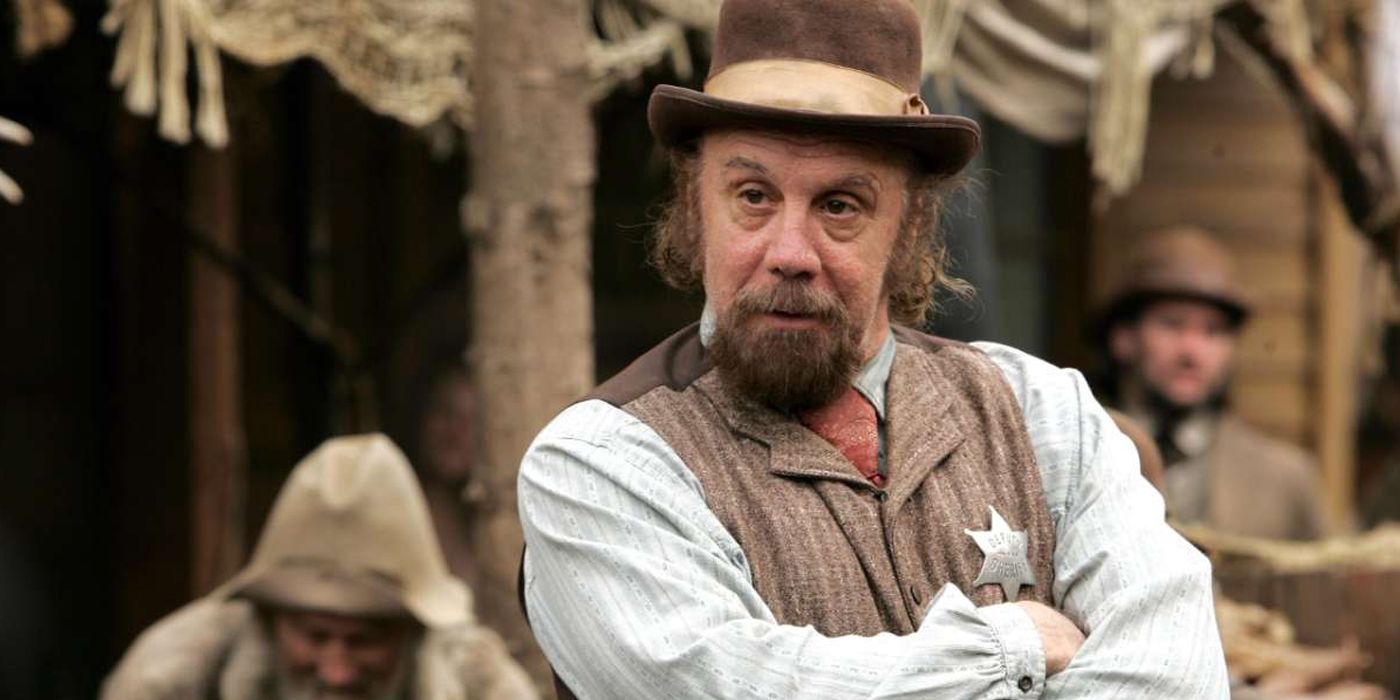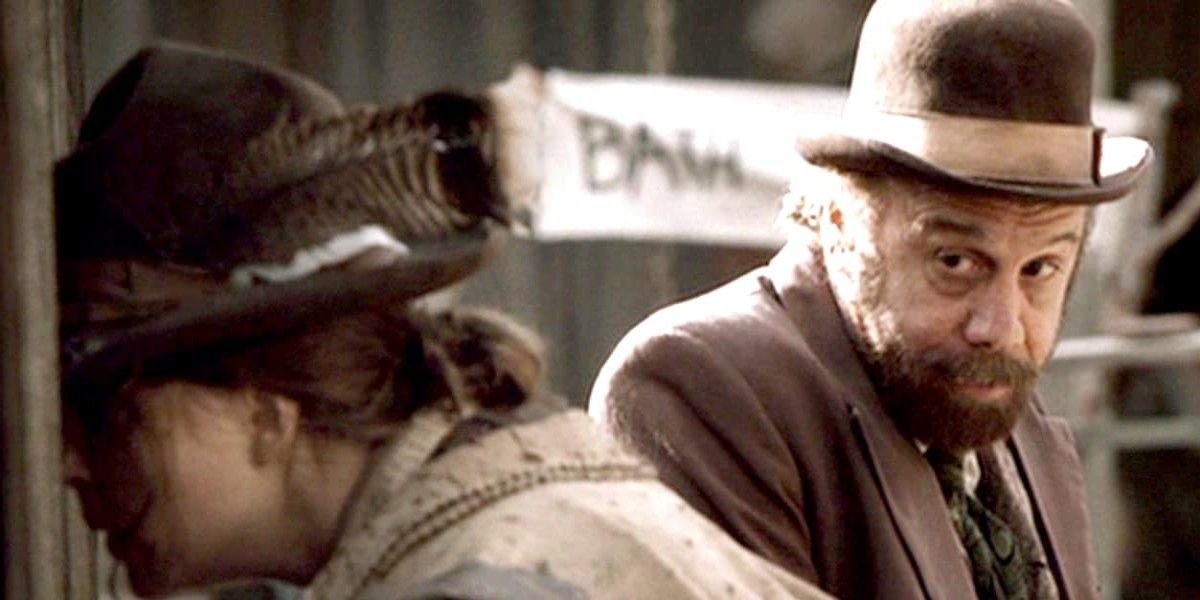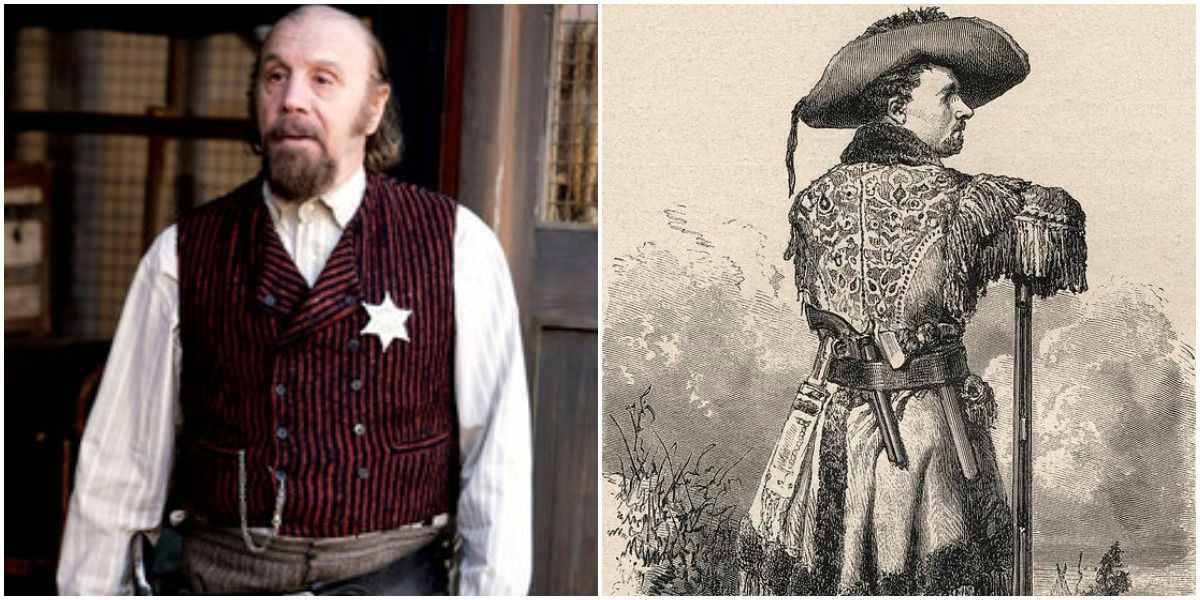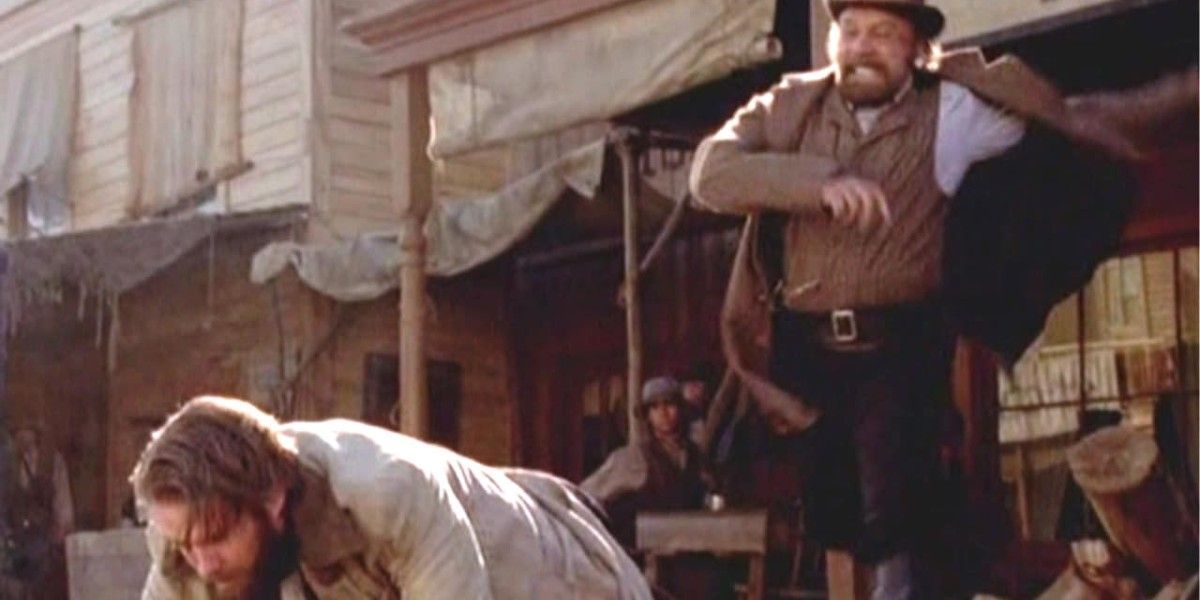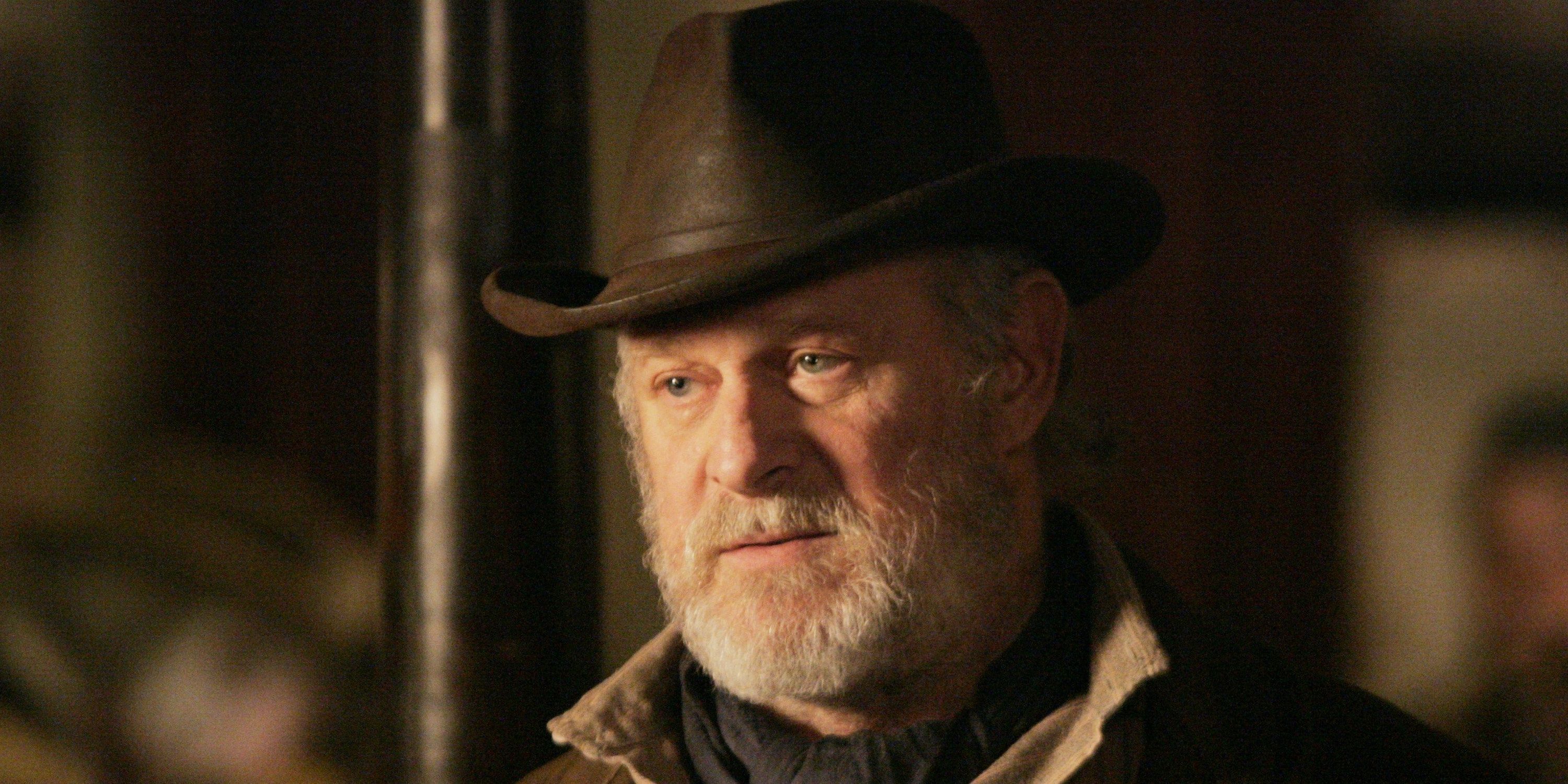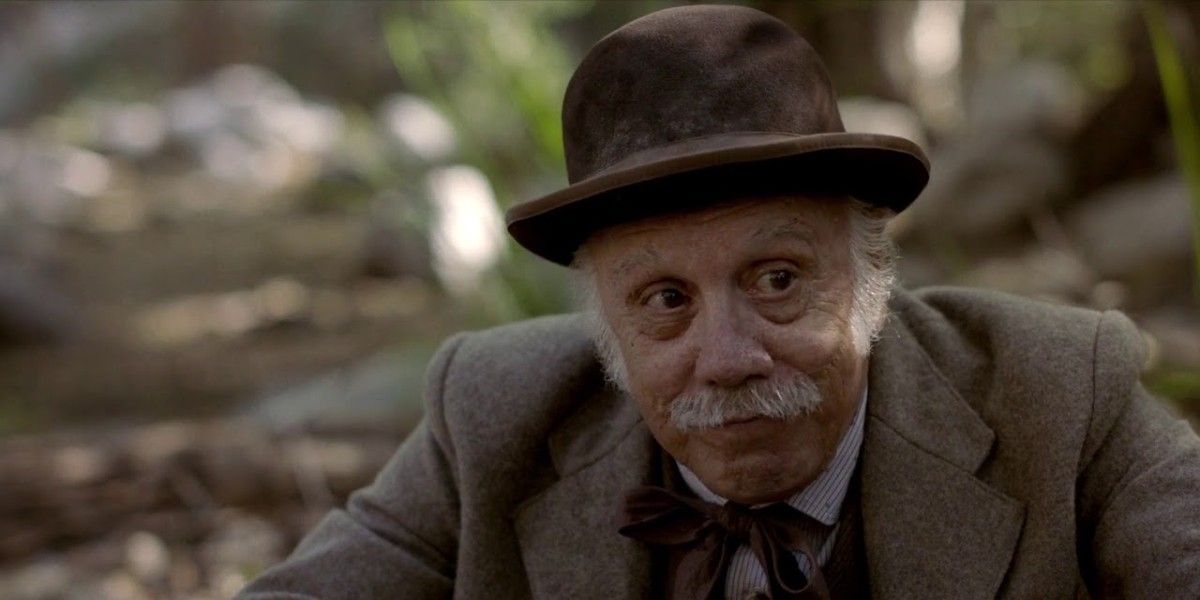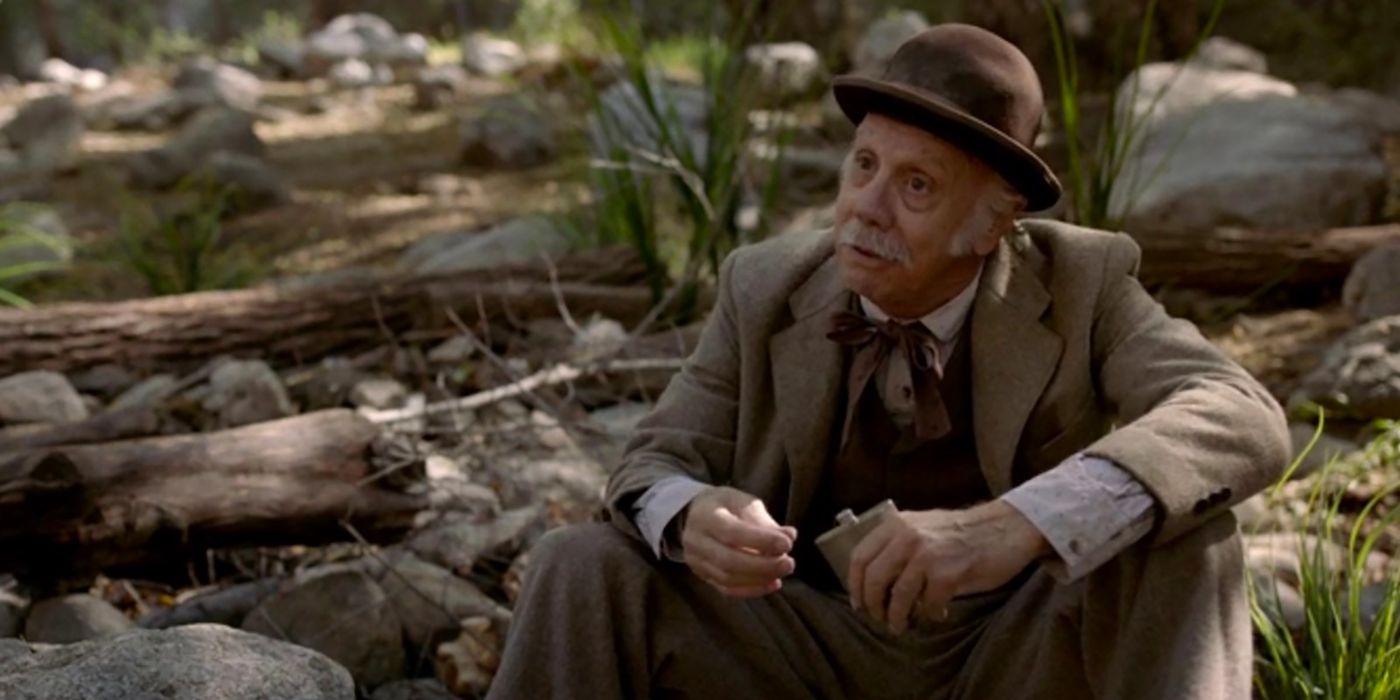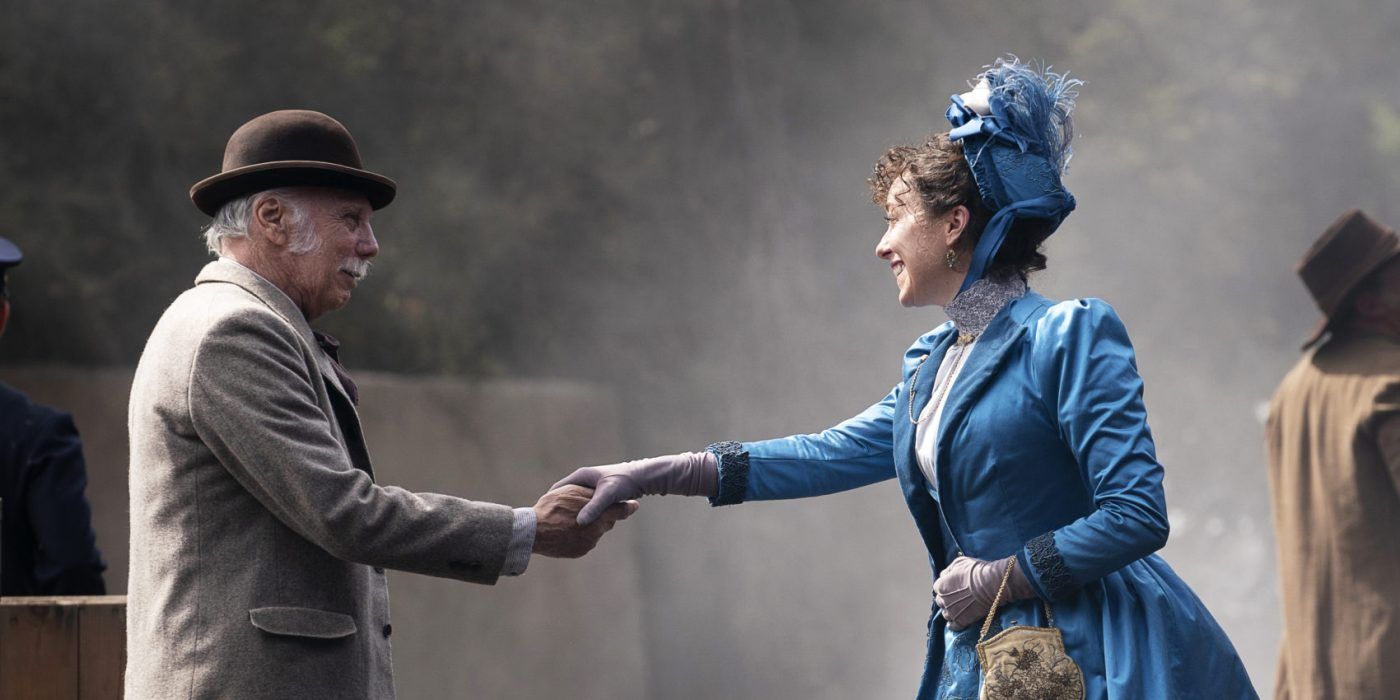Deadwood was a series known for lovable rogues, and offered a colorful cast of characters who straddled the divide between righteous and rancid. No person in the titular camp was beyond repudiation, but fan favorite Charlie Utter was one of the closest to being truly heroic and honorable. There was a method to his madness, and even at his most ornery, fans could always follow along with his machinations.
Occasionally Charlie did things that took viewers by surprise, both because of the paradoxical qualities inherent to the deeds themselves, and because they seemed to be inconsistent with his narrative arc. From his relationship to Joanie Stubbs, to the abrupt and careless manner of his demise, there are ways in which Charlie seemed to make little sense in the series.
HIS POOR SELF ESTEEM
More than any other man in camp, Charlie seems to suffer from a poor self image and a lack of self esteem. He's so unsure of his competence at running his own freight business that he can't even be comfortable in the new suit he buys specifically for its grand opening.
Charlie's entourage included Wild Bill Hickok and Calamity Jane, frontier icons of the Wild West, and yet despite riding with such lauded heroes he seems to be content riding shotgun to their notoriety.
HIS RELATIONSHIP WITH JOANIE
Ever since the two first interacted, there was an organic chemistry to Charlie and Joanie's friendship. She felt he was one of the only people she could truly confide in, and he felt that she was a true lady despite being the madam of a brothel.
For an introverted and wary person like Joanie, she seemed to warm up to Charlie fairly quickly, and when he championed her honor by beating on Francis Wolcott, it seemed like something more might develop between them, but it never did.
HIS ANGER PROBLEMS
While Charlie wasn't anywhere near the volatile volcano of Seth Bullock, he could get plenty aggressive when certain indignant feelings claimed his more rational mindset. He got temperamental with Jane, Hearst, Wolcott, Al, and Wild Bill to name a few, despite the fact that he was depicted as a quiet sort of person.
His anger problems seemed to begin after Wild Bill's death, something which Charlie could have prevented. It seemed out of character for him to make a freight trip at the exact time he knew Bill had forsaken himself. He also didn't depart the camp with a word to Bullock, who might have been able to chaperone the famous gunsel.
HIS RELATIONSHIP WITH JANE
Calamity Jane took Wild Bill's death even harder than Charlie, and where she'd been known as a town drunk before, she became a full-fledged addict afterwards, rife with the shame, guilt, and circular thinking that goes along with it.
Charlie enabled Jane as often as he truly helped her, and his temperamental relationship with her only succeeded in making her wallow in negativity. Sometimes they seemed thick as thieves, and other times he seemed content to let her lie in the street covered in her own vomit.
HIS APPEARANCE
Viewers might think that a man who rode in with Wild Bill Hickok, a paragon of fine tailoring who knew the value of cutting a signature silhouette, Charlie Utter would want to dress more inkeeping with his illustrious company.
The real Charlie Utter had several pearl-handled pistols, was known for bathing daily, and wore incredible custom-made buckskin suits made to his exacting specifications. He should have upstaged Wild Bill, but instead he just looked like his harried valet.
HIS BEHAVIOR TOWARDS FRANCIS WOLCOTT
Charlie may have thought he was defending Joanie's honor by serving vigilante justice to Francis Wolcott, but by beating him in the street Charlie only besmirched his own reputation. By roughing up George Hearst's acting representative in the camp, he would be singled out in future situations.
Out of nowhere Charlie decided to instigate a conflict with Wolcott in the dining room of the Grand Central Hotel, even though he should have gone to Bullock and explained what Wolcott had done. By taking the law into his own hands, he risked losing everything he had worked so hard to obtain for momentary satisfaction.
HIS BEHAVIOR TOWARDS GEORGE HEARST
Fear was a trait which seemed to find no purchase in Charlie's code of conduct, and he brazenly defied the vice-like grip that empire-builder George Hearst had on the camp. He could insult Hearst in the street and openly greet the repercussions.
In Deadwood: The Movie, he did this seemingly knowing he was going to lose his life, and it seemed a strange hill for Charlie to die on. He knew from Hearst's dealings with Ellsworth what would come next, and it seemed Charlie would have been more prudent and made preparations.
CHARLIE'S LAND
In Deadwood: The Movie, Charlie has moved on from the freight shipping business and has seemingly retired on a piece of land he "spent his whole life" working towards (or at least the time he's spent in Deadwood). George Hearst returns to Deadwood as South Dakota approaches statehood and is desperate to buy it for his telephone poles.
Fans wondered why he chose Charlie's land specifically since he could have placed his wires anywhere, and as a practical man would take the path of least resistance. He seems to fully expect to use Charlie's land, despite their uncongenial relationship in the series.
HIS DEATH
Fan favorite Charlie died suddenly and unexpectedly at the hands of George Hearst's goons, after refusing to accept Hearst's money for his plot of land. He was shot off-screen and the next time fans saw him, he was being lowered into the ground at his funeral.
For many viewers this was an unceremonious and thankless send-off for a character who had been responsible for so many great moments in the series. It also mirrored Whitney Ellsworth's death almost exactly, wherein both men of brains and repute were murdered by Hearst despite knowing better.
HIS AGE IN THE MOVIE
Deadwood: The Movie takes place roughly 13 years after the events of the series finale, but the characters seem to have aged nearly two decades. Charlie Utter looks almost unrecognizable in his first appearance in the film, with wizardly whiskers and none of his robust comportment.
By contrast Al Swearengen, portrayed by Ian McShane in his late '60s in the series and now in his late '70s in the film, looks barely changed at all. Yet somehow, Charlie looks like he's aged 20 years or more underneath all the makeup.

